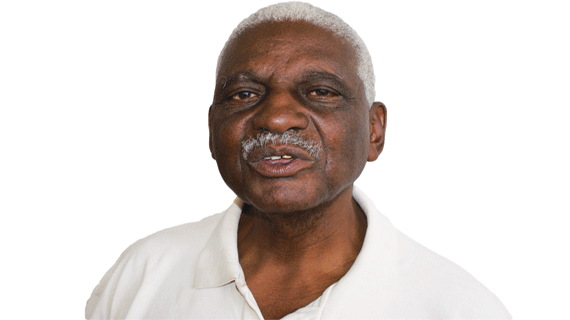
THE MAIN thrust of this series is to demonstrate that language is culture. You cannot talk about the culture of a people without talking about their language.
ISAAC Mpofu (UNYANDENI oMpofu)
Conversely, you cannot talk about the language of a people without revealing their culture. For example when you mention ukumekeza you are revealing an aspect of Ndebele culture.
That is why we have painstakingly developed this series from part 1 up to the present part 8. We apologise profusely for the interruptions in the order of this series by headings that were not intended and which may derail the reader’s trend of thought.
In our last issue which was meant to be Part 7, we introduced one of the main features of the Ndebele culture, namely Hlonipha Language .
This is an important characteristic of the Ndebele language. Ndebele people shy away from unsavoury language.
The Grade 7 Ndebele Examination of October 2013 is a sad example of some of those words that are generally avoided (except of course, Zimsec experts —how sad! )
Below are a few examples of the level of acceptable Hlonipha language in Ndebele :
- Chamisa under fire over US$120K donation
- Mavhunga puts DeMbare into Chibuku quarterfinals
- Pension funds bet on Cabora Bassa oilfields
- Councils defy govt fire tender directive
Keep Reading
- Inhliziyo yami iyaqubuka, kuthi kangikhuphe
- Isisu silele singigijimisa ubusuku bonke
- UGconiwe wakoMpofu kaziphathi, isimilo sakhe siyasoleka/ulamehlomehlo.
- Udinga ugogo? Uphumile uyengaphandle.(This is unpalatable for some people.)
Ungene endlini encane
- Wena Senzeni , umfazi ongangawe ulokhu elala ethambisa ebusuku? Kawuhloli pho !
- UNakaMcephe ubezithwele kodwa uswele.
- USazini libomqaphela ngoba ulesandla
- Inkomokazi le isilandelwe.
Furthermore, Ndebele tends to avoid obnoxious expressions even if they are not necessarily vulgar. For example, it is not decent speech to say, Uvimbene, uselokhu esikhihlizela iminqofula yakhe. Hlonipha language accords respect to proper names of certain people according to various catergories as follows:
- Marital relationship
Mother–in–law may not say the name of her son-in-law, not even when that name refers to someone else or some other object, eg if the son–in–law is Nyamazana mother-in-law ceaces to use the word inyama and calls it ingimba. To her KoNyamayabo kukoNgimba. This hlonipha taboo binds father–in-law in relation to his son’s wife , daughter-in-law, son –in-law and all those who share the relationship in the extended family .
It should be noted that this is not euphemism in the English sense. There is no English equivalent for this hlonipha language .
Other examples of Hlonipha words referred to as ukugcwigcwiza are:
Inkomo— insitha, umlomo — umqitho Umganu — umcephe indlela — inaba
- Parent — child relationship
Children do not generally say their parent’s name, unless required to do so such as:
Sakubona mfana. Ungumfokabani wena?
NgingumfokaNcube, uHloniphisa
Children never say their mother’s name. Some don’t even know it. It is taboo.
- Husband — wife relationship
Lo ngumkami, UMnkandla. Mina ngingu MaNtini, uNakaSobizo. Sihlala eSilawe koMbuzimbili.
How beautiful! Real culture, Ndebele at its best. This business of saying Mina ngingu Misisi Nyoni, nginguSakhile. LonguMajijili, umkami is simply sickening. The beauty of Ndebele is that a woman never loses her family name. It continues to be popularised with the prefix Ma-: MaDlodlo, MaSiziba, MaCala, designating her marital status.
Alternatively, she is referred to with the prefix Naka — designating her firstborn child:
NakaThulani, NakaSihawu. This is the Ndebele language culture at work. This business of husband and wife calling each other, Hello, Sam, ungaphi? Yes, Thembi , ngilapha, swithi, is something else.
In Ndebele husbands and wives do not call each other by first names. The wife will say, sekaViki, or simply, “Ncube”. The husband calls her attention by NaKaNtombi, or MaDlamini as indicated above.
- Other relationships
This is a wide area which will be discussed in full under a different context .
We will explore such terms as: umamazala, umlamu, umkhwenyethu, umntanentombi usebele and a host of other vocabulary. To a great extent they all relate to the Hlonipha language and are culturally charged.
Hlonipha language is sacred to the Ndebele culture. It should and must be preserved. Permissive society allows for indecent and unclean language.
Umfazi ka- , uhamba ejika izibunu.
UNontombi ufike wahlala kubi waphongusiphakulela nje. Gosh! This is gross vulgarity. The now world renowned writer, No Violet Bulawayo has written a new world-class novel, We Need New Names.
Great!
But much of her language is vulgar to the extreme and would not feature in the Ndebele culture. It is hoped that it will not be a model to anybody.
For the present we will rest the topic of language as culture in order to tackle other forms of Ndebele culture. We will come back to language at a later stage.










